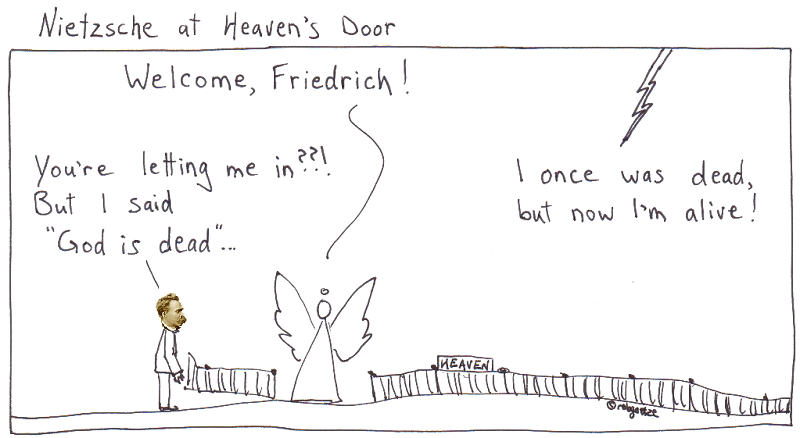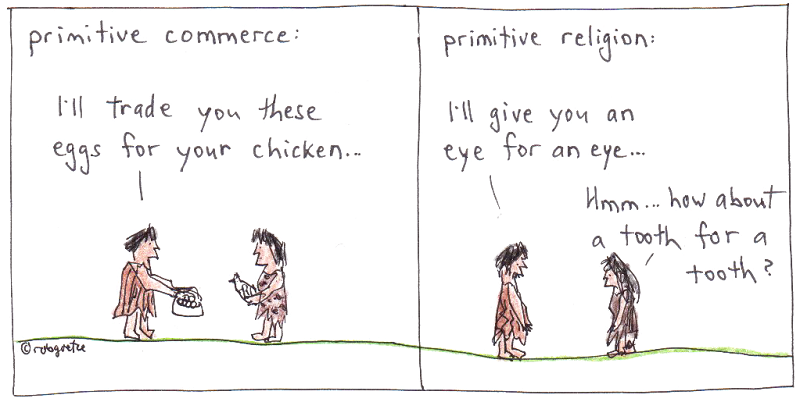.... and we all know forever is a very long time.
Jesus stoning people? Rather an outrageous idea, don'tcha think?
What inspired this sick cartoon commentary on Jesus and the effects of playing Xbox, was the message which a church in New York City put on its sign this month (March, 2014), a message which is not funny in the slightest:
Jesus would stone homos, the sign says. It then quotes four verses and concludes with, "Stoning is still the law."
Would Jesus really stone gay and lesbian people? Let's use their four verses of choice to consider the answer:
Here's a breakdown of the verses, each with a summary and a comment by me:
Matthew 5:17-19
Jesus speaks about not abolishing the law but fulfilling it.
Jesus did not get rid of the Old Testament law about stoning... (fairly clear) but came to fulfill it (the meaning of this is up for discussion). Doesn't support their premise.
Leviticus 20:13
Putting to death men who have sex with men.
Fairly clear verse, but doesn't tell us what Jesus would do, especially considering that Jesus broke other Old Testament rules, like working on the Sabbath, associating with sinners, etc.
Deuteronomy 17:5-7
About stoning people who do evil things and worshiped the stars, sun and moon.
Strange choice of verse, as it does not mention same-sex relations, and there are other verses about stoning which could have been included. Again, does not tell us if Jesus would stone people who do evil things.
John 8:1-11
Ironically, this is the passage about the teachers of the law and the Pharisees bringing the woman caught in adultery to Jesus... and you might know the rest of the story (if not, read it here).
Perhaps they included this passage because Jesus did not object to stoning, but said that whoever is without sin should throw the first stone, thus supposedly legitimizing stoning and suggesting that he (being sinless) could have stoned her?
And that's what makes this choice of verse so ironic, because the Jesus who the pastor of ATLAH claims "would stone homos", the Jesus who is without sin, did not stone the woman! Claims like those made by ATLAH are projections of their own hatred and bias, in religious disguise and with false Biblical justification.
The idea of Jesus stoning anyone is simply inconsistent with his life. And if I have to choose between verses and the life of Jesus, I'll take the life of Jesus anytime.































